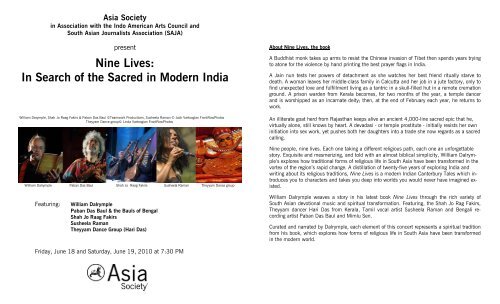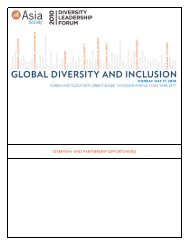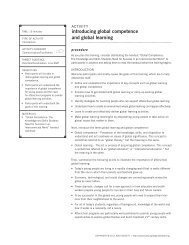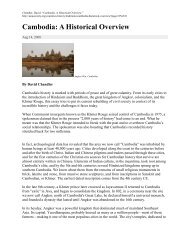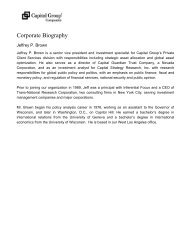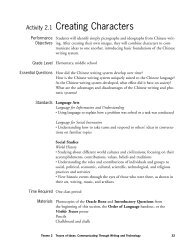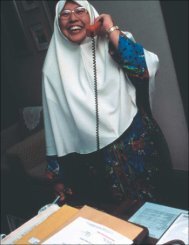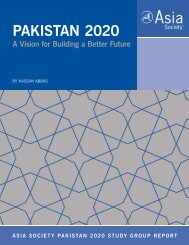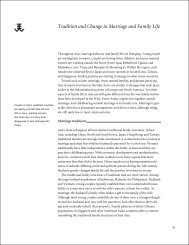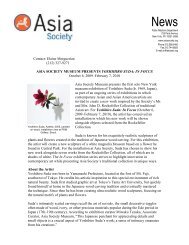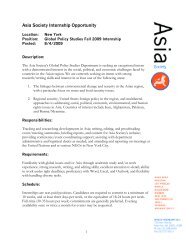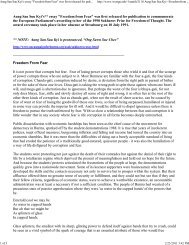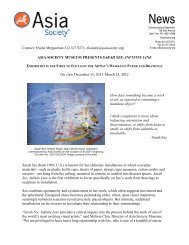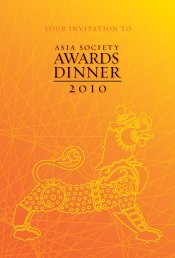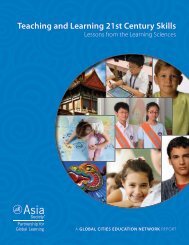Pg notes - Nine Lives- For Web - Asia Society
Pg notes - Nine Lives- For Web - Asia Society
Pg notes - Nine Lives- For Web - Asia Society
Create successful ePaper yourself
Turn your PDF publications into a flip-book with our unique Google optimized e-Paper software.
<strong>Asia</strong> <strong>Society</strong><br />
in Association with the Indo American Arts Council and<br />
South <strong>Asia</strong>n Journalists Association (SAJA)<br />
present<br />
<strong>Nine</strong> <strong>Lives</strong>:<br />
In Search of the Sacred in Modern India<br />
William Darymple, Shah Jo Raag Fakirs & Paban Das Baul ©Teamwork Productions, Susheela Raman © Jack Vartoogian FrontRowPhotos<br />
Theyyam Dance group© Linda Vartoogian FrontRowPhotos<br />
William Dalrymple Paban Das Baul Shah Jo Raag Fakirs Susheela Raman Theyyam Dance group<br />
Featuring: William Dalrymple<br />
Paban Das Baul & the Bauls of Bengal<br />
Shah Jo Raag Fakirs<br />
Susheela Raman<br />
Theyyam Dance Group (Hari Das)<br />
Friday, June 18 and Saturday, June 19, 2010 at 7:30 PM<br />
About <strong>Nine</strong> <strong>Lives</strong>, the book<br />
A Buddhist monk takes up arms to resist the Chinese invasion of Tibet then spends years trying<br />
to atone for the violence by hand printing the best prayer flags in India.<br />
A Jain nun tests her powers of detachment as she watches her best friend ritually starve to<br />
death. A woman leaves her middle-class family in Calcutta and her job in a jute factory, only to<br />
find unexpected love and fulfillment living as a tantric in a skull-filled hut in a remote cremation<br />
ground. A prison warden from Kerala becomes, for two months of the year, a temple dancer<br />
and is worshipped as an incarnate deity; then, at the end of February each year, he returns to<br />
work.<br />
An illiterate goat herd from Rajasthan keeps alive an ancient 4,000-line sacred epic that he,<br />
virtually alone, still knows by heart. A devadasi - or temple prostitute - initially resists her own<br />
initiation into sex work, yet pushes both her daughters into a trade she now regards as a sacred<br />
calling.<br />
<strong>Nine</strong> people, nine lives. Each one taking a different religious path, each one an unforgettable<br />
story. Exquisite and mesmerizing, and told with an almost biblical simplicity, William Dalrymple’s<br />
explores how traditional forms of religious life in South <strong>Asia</strong> have been transformed in the<br />
vortex of the region’s rapid change. A distillation of twenty-five years of exploring India and<br />
writing about its religious traditions, <strong>Nine</strong> <strong>Lives</strong> is a modern Indian Canterbury Tales which introduces<br />
you to characters and takes you deep into worlds you would never have imagined existed.<br />
William Dalrymple weaves a story in his latest book <strong>Nine</strong> <strong>Lives</strong> through the rich variety of<br />
South <strong>Asia</strong>n devotional music and spiritual transformation. Featuring, the Shah Jo Rag Fakirs,<br />
Theyyam dancer Hari Das from Kerala, Tamil vocal artist Susheela Raman and Bengali recording<br />
artist Paban Das Baul and Mimlu Sen.<br />
Curated and narrated by Dalrymple, each element of this concert represents a spiritual tradition<br />
from his book, which explores how forms of religious life in South <strong>Asia</strong> have been transformed<br />
in the modern world.
Program<br />
Reading Introduction by William Dalrymple & Chapter 1 and Story on Bauls<br />
Performance Paban Das Baul & Mimlu Sen<br />
Reading William Dalrymple reads from chapter 2<br />
Performance Theyyam Dance Group<br />
Intermission<br />
Reading William Dalrymple reads from Chapter 3<br />
Performance Shah Jo Raag Fakirs<br />
Reading William Dalrymple reads from Chapter 4 and conclusion –<br />
Performance Susheela Raman with Sam Mills and Atef Durvesh<br />
Approximately 2 hours followed by a reception and book signing<br />
About the Artists/groups<br />
William Dalrymple (author) wrote his first book, In Xanadu: A Quest (1989), at 22 years of<br />
age, and in 1989, moved to Delhi to research City of Djinns: a year in Delhi (1993), which<br />
went on to win the 1994 Thomas Cook Travel Book Award and the Sunday Times Young Writer<br />
of the Year Award. His next book From the Holy Mountain: a Journey in the Shadow of<br />
Byzantium (1997) was followed by The Age of Kali: Indian Travels and Encounters (1998).<br />
White Mughals (2002), the book which marked Dalrymple's shift from travel writing to history,<br />
won the 2003 Woolfson Prize for History, and the Scottish Arts Council Book of the Year Award.<br />
In 2006, William Dalrymple published The Last Mughal: the Fall of a Dynasty, Delhi, 1857.<br />
The Last Mughal won the Duff Cooper Memorial Prize and the Crossword Prize for Non-Fiction.<br />
His most recent book, <strong>Nine</strong> <strong>Lives</strong>: In Search of the Sacred in Modern India was published by<br />
Bloomsbury October 2009, to great acclaim, and went straight to number one in the Indian<br />
bestseller list. williamdalrymple.uk.com<br />
Paban Das Baul & the Bauls of Bengal (7pax)<br />
- Paban Das Baul (vocals + dubki (tambourine) + khamak (plucking drum))<br />
- Mimlu Sen (vocals /translations of texts + cymbals)<br />
Bauls of Bengal<br />
The Bauls of Bengal are a group of itinerant mystic minstrels whose beliefs draw on Vaishnavite<br />
Hindu and Sufi Muslim thought. The music of the Bauls, refers to a particular type of folk song<br />
sung by Bauls. It carries influences of Hindu bhakti movements as well as the suphi, a form of<br />
Sufi song mediated by many thousand miles of cultural intermixing as exemplified by the songs<br />
of Kabir.<br />
Paban Das Baul and Mimlu Sen<br />
Paban Das Baul has been a singer since childhood. Born in 1961 in Murshidabad, he<br />
incarnates the synergy of his place of origin: between Tantric, Vaishnava, Sufi and Buddhist<br />
cultures which he draws upon liberally to embellish his art and music. Paban Das Baul plays<br />
and makes with his own hands many musical instruments, the dubki - a sort of tambourine, the<br />
khamak - a plucking drum, the dotara - a 5 stringed lute and various percussion instruments. In<br />
1990, Paban created Antar Jantar, a cooperative society of destitute artisans specializing in<br />
making folk musical instruments. The rich and melodic musical tradition of India's Bengali<br />
region is given a modern sensibility by Paban Das Baul, a master of the dubki (a small<br />
tambourine) and a hypnotic vocalist. Mimlu Sen is a storyteller, musician, dancer, writer and<br />
author of The Honey Gatherers. She travels and performs with Paban Das Baul and the baul<br />
singers.<br />
Shah Jo Raag Fakirs<br />
Shah Jo Raag belongs to the family of musicians who sing at the shrine of Shah Lateef in Bhit<br />
Shah in the traditional manner that was created by the Shah himself about four hundred years<br />
ago. Shah Jo Raag is a direct descendant of Shah Jamal who was very close to Shah Lateef and<br />
his family has been the keeper of tradition. Every Thursday the session of singing begins after<br />
the esha (night) prayers and lasts the entire night. Duirng the annual Urs celebration the singing<br />
goes on nonstop for the three days of the event. The Wai singers dress themselves in black and
chant, strumming the dhamboor, the instrument created by Shah himself, and sing “Wai” the<br />
kalaam of the Shah by turns. Shah Jo Raag has been singing at the shrine for the last thirty<br />
years. His group has won awards in Paris, the Lateef Award and Rafi Peer Award in Pakistan.<br />
Susheela Raman, Sam Mills and Aref Durvesh<br />
Tamil Londoner Susheela is one of the most interesting musicians to emerge from the South<br />
<strong>Asia</strong>n Diaspora, equally at home with South Indian Classical as with Jimi Hendrix and Fela<br />
Kuti, Nusrat Fateh Ali Khan and Aretha Franklin. As a composer, arranger and interpreter she<br />
has forged her own unique, inclusive sound and has already gained immense critical and<br />
popular acclaim for her records. She has made four albums: Salt Rain (2001), Love Trap<br />
(2003), Music for Crocodiles (2005) and 33 1/3 (2007). Salt Rain went gold in France and<br />
was shortlisted for the UK Mercury Prize; Love Trap features Indian devotional songs and,<br />
amongst other great musicians, the legendary afro beat maestro Tony Allen on drums. Music<br />
for Crocodiles features musicians from South India and was partly recorded in Chennai<br />
(Madras). Susheela’s 33 1/3 is a collection of characteristically distinctive re-interpretations of<br />
songs by (amongst others) Velvet Underground, Dylan, Captain Beefheart, Can and Joy<br />
Division. Tonight she is accompanied by long time collaborators guitarist Sam Mills and<br />
percussionist Aref Durvesh.<br />
Tevaram is a beautiful ancient song form which developed in the great temples of mediaeval<br />
Tamil Nadu. The Tevaram songs are the seven volumes of devotional hymns written by Appar,<br />
Sambandar and the 63 Tamil saints, and which were first performed over a thousand years<br />
ago. Until recently their words were the common property of all Tamils; now however the<br />
tradition is slowly beginning to die out.<br />
Susheela’s master, Dharmapuram Swaminathan, who is widely considered a saint in Tamil<br />
Nadu, is also recognized as the greatest living authority on Tevaram. He is also probably the<br />
last great exponents to be focused on both the spiritual and musical sides of the hymns.<br />
Theyyam Dance Group<br />
Theyyam or Theyyattam is a popular Hindu ritual of worship in North Kerala, India,<br />
predominant in the Kolathunadu area (consisting of present-day Kannur and Kasargod<br />
districts). It is a living tradition that is over a thousand years old. The term Theyyam is derived<br />
from Devam or God. People of these districts consider the Theyyam performer as incarnating<br />
the deity and from whom they request blessings.<br />
Hari Das<br />
Hari Das, a well-digger and prison warder (and a character in William Dalrymple’s book <strong>Nine</strong><br />
<strong>Lives</strong>) is a renowned practitioner of theyyam. Three months of the year he performs this<br />
spiritual rite, seeking possession by Hindu deities. In his spiritual incarnation Brahmins touch<br />
his feet and worship him as a god.<br />
About Teamwork Production<br />
Teamwork Productions is a highly versatile entertainment company, with roots in the<br />
performing arts, social action, and the corporate world.<br />
Teamwork Films, India: Teamwork Productions Singapore: Teamwork Films Pvt Ltd UK:<br />
Friends of Music and TWF Arts <strong>Society</strong> and liaison offices in Hong Kong and New York have<br />
initiated a wide range of projects in Australia, Canada, France, Hong Kong, India, Indonesia,<br />
New Zealand, Singapore, Spain, UK and USA.<br />
Our expertise lies in the area of Entertainment including Television, Film - documentary and<br />
features, Event Management, Social Communication, Creation and Development of<br />
Contemporary Performing and Visual Arts Festivals across the world and in nurturing new<br />
talent across arts forms.<br />
Teamwork Films has been instrumental in establishing Friends of Music, a pioneering forum<br />
for promoting new bands, performers, and musicians. We have produced the Khajuraho<br />
Millennium Celebrations & Music Festival, Annual performing arts festivals in Europe,<br />
Singapore (Kalaa Utsavam) & Indonesia, an annual season of performing arts across the UK,<br />
The Festival of the Great Arc & the annual Ishara International Puppet Theatre Festival. We<br />
have programmed extensively in collaboration with The Edinburgh International & Fringe<br />
Festival, Valladolid International Film Festival Spain, & International Festivals in Perth,<br />
Wellington, Madrid & New York establishing a platform for Indian arts in these cities.<br />
Special Thanks to<br />
Darren Walker, Edwin Torres, Sanjoy Roy, Jamie B. Larson, Aroon Shivdasani,<br />
Indo American Arts Council (IAAC) and South <strong>Asia</strong>n Journalist Association (SAJA).<br />
<strong>Asia</strong> <strong>Society</strong> Staff<br />
Vishakha N. Desai, President<br />
Michael Roberts, Executive Director, <strong>Asia</strong>NY Center<br />
Rachel Cooper, Director, Cultural Programs and Performing Arts<br />
La Frances Hui, Senior Program Officer, Cultural Programs<br />
Sébastien Haizet, Program Officer, Cultural Programs<br />
Ayesha Sikander, Program Associate, Cultural Programs<br />
Mohsin Mohi-ud-Din: Program Consultant<br />
Eric DeArmon, Audio Visual Manager<br />
Eric Chase, Crew chief and Lighting Designer<br />
Oscar de la Fe Colon, Lighting Technician and Anycast Operator<br />
Brian Petway, A1 and Sound Board Operator<br />
Chris Schardin, A2 and Deck Hand for Show Run.<br />
Kia Rogers, Lighting technician and Light Board Operator<br />
Elaine Merguerian, Associate Director, Communications<br />
Jeff Tompkins, Producer, <strong>Asia</strong> <strong>Society</strong> Online<br />
Hesh Sarmalkar, Director of Events and Visitor Services<br />
Paul Bolinger, Box Office Manager
About <strong>Asia</strong> <strong>Society</strong><br />
The <strong>Asia</strong> <strong>Society</strong> is an international organization dedicated to strengthening relationships and<br />
deepening understanding among the peoples of <strong>Asia</strong> and the United States. Founded in 1956<br />
by John D. Rockefeller 3rd, the <strong>Society</strong> reaches audiences around the world through its<br />
headquarters in New York and regional centers in Houston, Los Angeles, San Francisco,<br />
Washington, DC, Hong Kong, Manila, Melbourne and Shanghai. A nonprofit, nonpartisan<br />
educational organization, the <strong>Society</strong> provides a forum for building awareness of the more than<br />
thirty countries broadly defined as the <strong>Asia</strong>-Pacific region - the area from Japan to Iran, and<br />
from Central <strong>Asia</strong> to New Zealand and the Pacific Islands. Through art exhibitions and<br />
performances, films, lectures, seminars and conferences, publications and assistance to the<br />
media, and materials and programs for students and teachers, the <strong>Asia</strong> <strong>Society</strong> presents the<br />
uniqueness and diversity of <strong>Asia</strong>.<br />
The Performing Arts program has been a pioneer in the presentation of traditional and<br />
contemporary <strong>Asia</strong>n performing arts in the United States since 1960. It has introduced<br />
American audiences to the work of performing artists ranging from some of the greatest figures<br />
of traditional music such as sitar virtuoso Ravi Shankar, to seminal contemporary dance<br />
companies like Cloud Gate Dance Theatre of Taiwan, and American artists influenced by <strong>Asia</strong>n<br />
cultures such as Philip Glass. The <strong>Society</strong> commissioned and produced Wenji: Eighteen Songs<br />
of a Nomad Flute, a bilingual (Chinese-English) chamber opera by Macau-born Chinese<br />
composer Bun-Ching Lam; In What Language? A Song Cycle of <strong>Lives</strong> in Transit, a theatrical<br />
production bringing together elements of jazz, hip-hop, and spoken word poetry by Indian<br />
American composer Vijay Iyer; 5 Streams, a cross-media performance directed by Ibrahim<br />
Quraishi; and Kinsmen/Svajanam, a musical collaboration by two masters of alto saxophone,<br />
South India’s Carnatic music legend Kadri Gopalnath and Indian American jazz virtuoso<br />
Rudresh Mahanthappa. The <strong>Society</strong> in collaboration with BAM and NYU Center for Dialogues<br />
recently presented “Muslim Voices Arts and Ideas”, a multi-venue arts festival and conference<br />
celebrating the extraordinary range of artistic expression throughout the Muslim world.<br />
Major support for <strong>Nine</strong> <strong>Lives</strong> has been provided by the Rockefeller Foundation's New York City<br />
Opportunities Fund. Additional support provided as part of the Creative Voices of Islam in <strong>Asia</strong><br />
project funded by the Doris Duke Foundation for Islamic Art. Major support for performances at<br />
the <strong>Asia</strong> <strong>Society</strong> is provided by the Doris Duke Charitable Foundation, the Helen and Will Little<br />
Endowment for Performing Arts and The Fan Fox and Leslie R. Samuels Foundation, Inc. and<br />
the New York State Council for the Arts.<br />
Produced by Teamwork Productions


